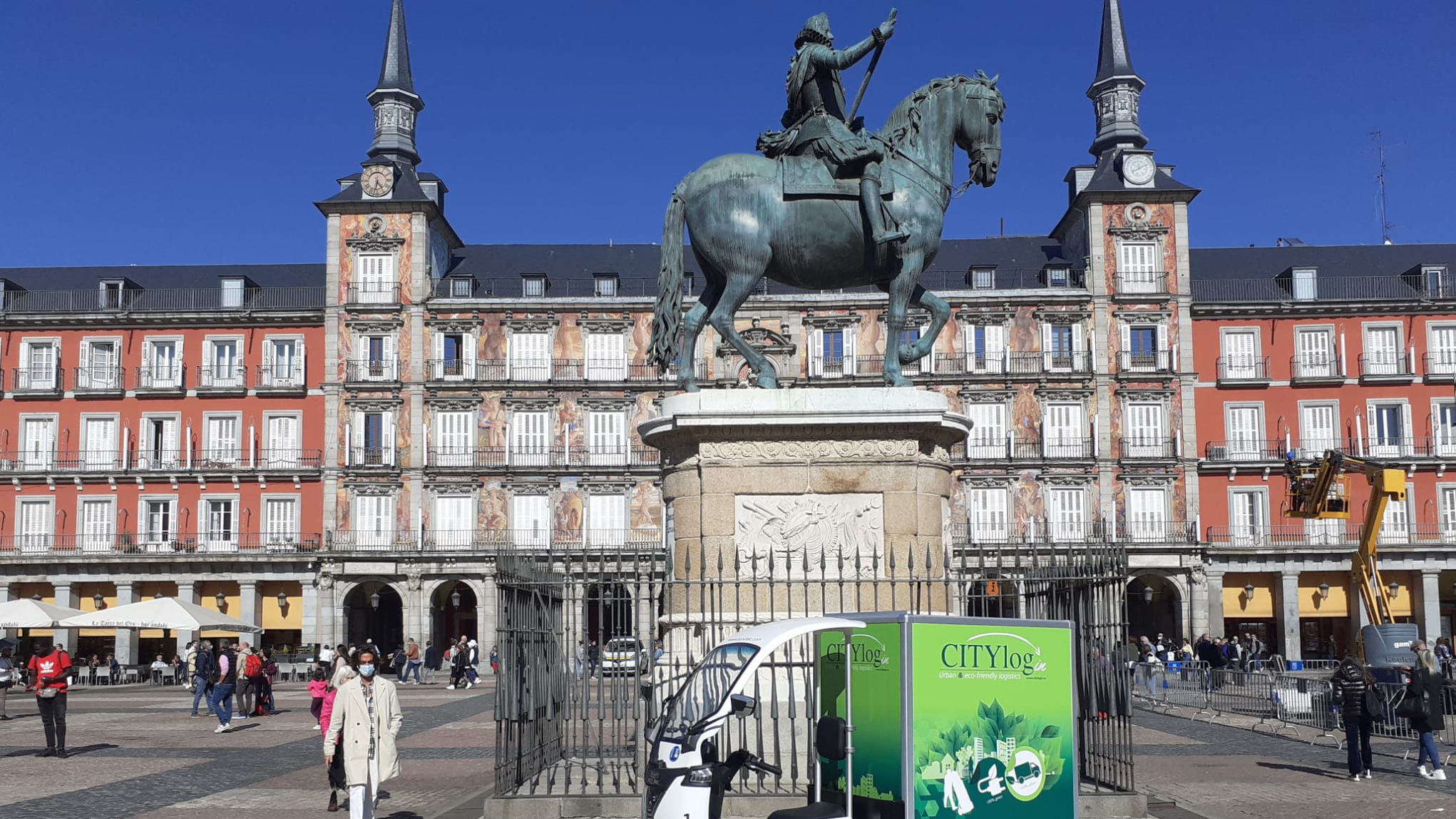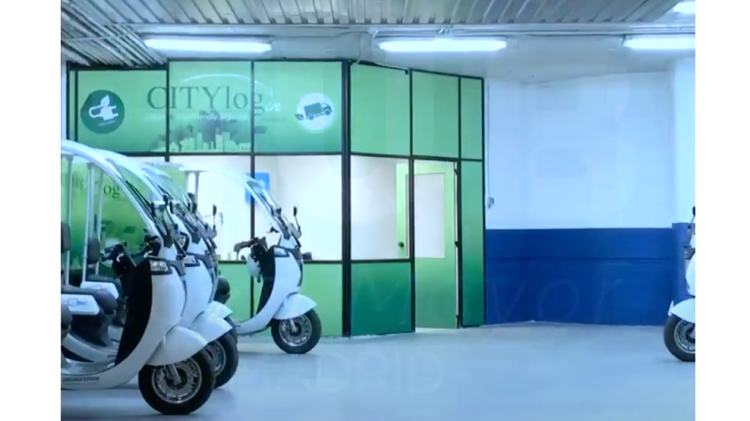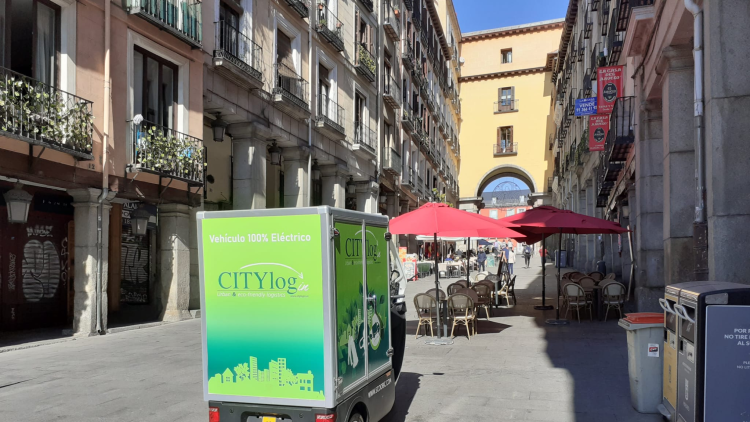Madrid: Urban Consolidation Center supported by a Digital Twin

The Challenge
Madrid is an important logistics hub, located within the Atlantic and the Mediterranean TEN-T corridors. Since the pandemic outbreak, the city experienced a substantial increase in both receiving and pass-through long-haul trucks, and an exponential rise of e-commerce and home delivery, a major part of which is expected to remain in the “new normal”.
Despite the city implemented a successful Low Emission Zone scheme that improved air quality, air pollution remains one of the biggest environmental risks to the health of all Madrid inhabitants. In fact, urban freight distribution accounts for 10% of the urban vehicles fleet, 20% of peak hour congestion and 30% of pollution from transport in Madrid. Reducing the number of vehicles and the travelled distances seems to be one of the best ways of reducing congestion and pollution and improving air quality in the city.
As an immediate action Madrid wants to explore urban consolidation centres connected to the TEN-T to deliver to the city centre.
The Solution
The urban consolidation centre addresses real freight movement problems while exploring the concept of a digital twin to optimise city logistics operations of hybrid and 100% electric vans and 100% electric three-wheelers used for the last-mile delivery.
The logistics centre is located within the special protection Low Emissions Zone Distrito Centro, and was setup within an idle space of a city-owned, underground parking close to M-30 ring road, which belongs to TEN-T. The centre has a surface of 200m2 and counts currently with 15 electric vehicles, charging stations, and a staff capacity of 20 employees.
The digital twin integrates open data sources, models and software tools, that enable a comprehensive evaluation of logistics operations considering contextual indicators such as emissions, congestion and noise, as well as operations performance indicators, labor and costs impact.
Digitalising the entire urban logistics supply chain supports policymaking and business decisions. Policymakers and operators can respond to emerging questions such as "what are the effects of defining new low emission zones?"; "what if we shift urban consolidation centre location, setup new ones or use other types of vehicles?

Making an impact
The “business-as-usual” Digital Twin pilot started on October 6th 2021. It has been developed, tested, refined and validated against day-to-day distribution operations of one logistic services provider in this scenario, serving the city center from a peri-urban depo located in one of the main logistics areas at 20 km of Madrid. The findings have been applied to improve and optimise the physical activities.
The urban consolidation center scenario will be operational in the coming months, enabling the like-for-like comparison of both scenarios. Hypothesis validation conducted shows the potential to reduce vehicles journeys almost 50%.
Beyond the action scope in Madrid, the solutions are also being tested as a framework capable to connect, integrate and harmonise existing closed, independent logistics networks enabling the provision of open and shared services. Preliminary results indicate potential gains of up to 30% reduction in congestion and emissions, up to 25% reduction in transport and delivery costs of current vehicles, maximizing its utilization and minimizing kilometers run loaded and run-on-empty.

Lessons learnt
Urban Consolidation Centres can play a role in reducing urban freight transport activity, achieved through improvements in vehicle load factors and by performing well-organised, optimized vehicle journeys, which lead to reductions in the distance travelled per unit of product transported in urban areas.
Due to the location of the pilot urban consolidation centre in the city, the vehicles journeys are cut almost by half versus previous status, facilitating the use of electric and other alternatively-fuelled goods vehicles which emit less CO2 and other noxious gases and reduce vehicle noise.


